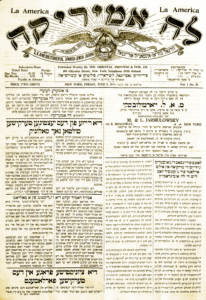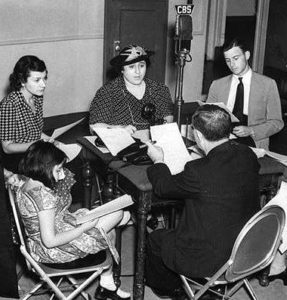American immigrant stories often start with the person’s life in the U.S., but gloss over the process of being admitted as an immigrant. Getting through the immigrant processing centers was stressful. There were language barriers, crowds, slow-moving lines, stringent medical and financial restrictions, and official questions that forced immigrants to guess what answers the officers wanted. Often, they guessed wrong.
Today we’ll look at the personal experiences of some specific would-be immigrants, as reported in 1911 and 1912 by the U.S. Jewish newspaper La America.

La America (New York), June 9, 1911, featuring the story of immigrant Gabriel Capelouto. Note the Yiddish text in the left column. This Ladino-language paper briefly experimented with front-page Yiddish content to raise Ashkenazic Jews’ awareness of their Ottoman neighbors.
When La America first wrote about Gabriel Capelouto of Bodrum, Turkey, he had been detained at Ellis Island for several weeks and was about to be deported. Capelouto had made the long journey from Turkey to Argentina. There he boarded a ship for New York (without his wife, Sinoru, or their two children) en route to Atlanta, where his wife’s brother, Reuben Galanti, was waiting for him. That’s when things started to go wrong.
In Buenos Aires, people warned Capelouto to expect prejudice in the United States. They told him the U.S. government would turn him away if they learned he was a Jew. Acting on that Continue reading

